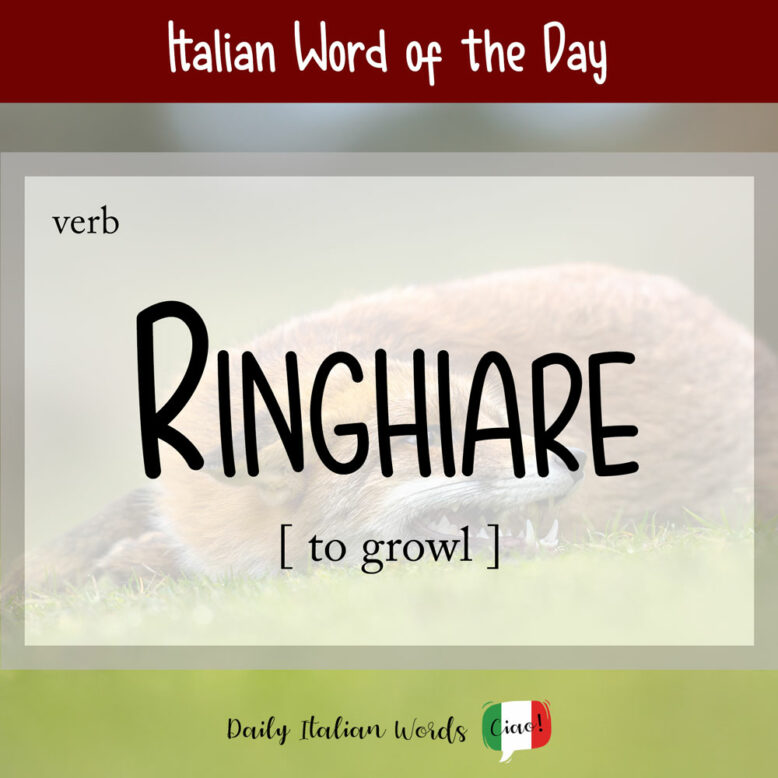Today’s word of the day sounds just like the action it is describing: the verb ringhiare (to growl). It comes from the Latin ringulare.

Although it is principally used to describe the low guttural sound of hostility emitted by dogs (cani), it can also apply to other animals such as wolves (lupi) or bears (orsi).
Il cane mi ringhia ogni volta che mi avvicino al cancello.
The dog growls at me whenever I come close to the gate.

It may also be used to talk about a person who speaks in an angry, bad-tempered voice.
Dopo avere ringhiato qualcosa di incomprensibile, è uscito sbattendo la porta.
After growling something incomprehensible, he got out slamming the door.
Below is how you would conjugate ringhiare in the present tense:
Io ringhio
(I growl)
Tu ringhi
(You growl – informal)
Lui ringhia
(He growls)
Lei ringhia
(She growls)
Lei ringhia
(You growl – formal)
Noi ringhiamo
(We growl)
Voi ringhiate
(You all growl)
Loro ringhiano
(They growl)
From ringhiare we also get the noun ringhio (growl, snarl) and the adjective ringhioso (snarling, irritable).
Ringhio can also the name for a dog in Italian. It is what the famous comedians Aldo, Giovanni e Giacomo called their dog in the hit film “Tre uomini e una gamba“. It is also the nickname earned by football player Gennaro Gattuso for his fierce temperament and stamina.
Heather Broster is a graduate with honours in linguistics from the University of Western Ontario. She is an aspiring polyglot, proficient in English and Italian, as well as Japanese, Welsh, and French to varying degrees of fluency. Originally from Toronto, Heather has resided in various countries, notably Italy for a period of six years. Her primary focus lies in the fields of language acquisition, education, and bilingual instruction.


